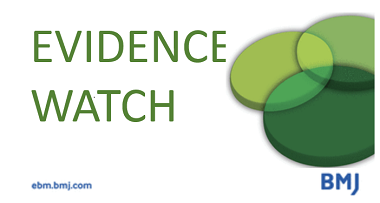NHS health checks may be missing the point when it comes to offering the optimal interventions and preventing cardiovascular disease.
Carl Heneghan

Since 2009 the NHS Health Check programme in England has added considerably to GP workload and has proved to be controversial given the uncertainty about whether it adds value.
A Cochrane review found that general health checks did not reduce morbidity or mortality, nor cardiovascular or cancer causes, although the number of new diagnoses increased.
A recent modelling study in Plos Medicine used Liverpool demographic data, local and national data, and health and social care costs to assess the incremental cost-effectiveness ratios (ICERs) and /quality-adjusted life year [QALY]) for different health check scenarios.
These scenarios were:
- (A): continuing current implementation of NHS Health Check; Scenario
- (B): implementation “targeted” toward areas in the most deprived quintile with increased coverage and uptake; Scenario
- (C): “optimal” implementation assuming optimal coverage, uptake, treatment, and lifestyle change; Scenario
- (D): scenario A combined with structural population-wide interventions targeting unhealthy diet and smoking; Scenario
- (E): scenario B combined with the structural interventions above
The model found that the current implementation of the NHS checks (scenario A) was the worst performing and unlikely to become cost-effective at any time point in the future (when the benefits of prevention would be realised). Of the other scenarios adding in targeted policies such as reducing unhealthy diet and smoking were more cost effective and also reduced inequity the most. (the ‘targeted Health Check plus structural interventions was estimated to prevent approximately 1,800 CVD cases by 2030).
What this shows
Locally contextual data is helpful for planning services. What this recent study shows is why there is a need to continually re-evaluate what health systems do and further develop the evidence-base. NHS health checks may be somewhat currently missing the point when it comes to offering the optimal interventions and preventing cardiovascular disease.
References
Future cost-effectiveness and equity of the NHS Health Check cardiovascular disease prevention programme: Microsimulation modelling using data from Liverpool, UK. Kypridemos C. et al. 2018. PLoS Medicine, 15(5), e1002573.
More from BMJ EBM
- Population-based health checks are here, RCTs or not
- Patients may overestimate their success in lowering coronary risk factors

BMJ Evidence-Based Medicine – original evidence-based research, insights and opinion
Read more about BMJ EBM content in the Welcome to BMJ Evidence-Based Medicine Editorial.
Competing interests
Carl has received expenses and fees for his media work including BBC Inside Health. He holds grant funding from the NIHR, the NIHR School of Primary Care Research, The NIHR Oxford BRC and the WHO. He has also received income from the publication of a series of toolkit books. CEBM jointly runs the EvidenceLive Conference with the BMJ and the Overdiagnosis Conference with some international partners which are based on a non-profit mode